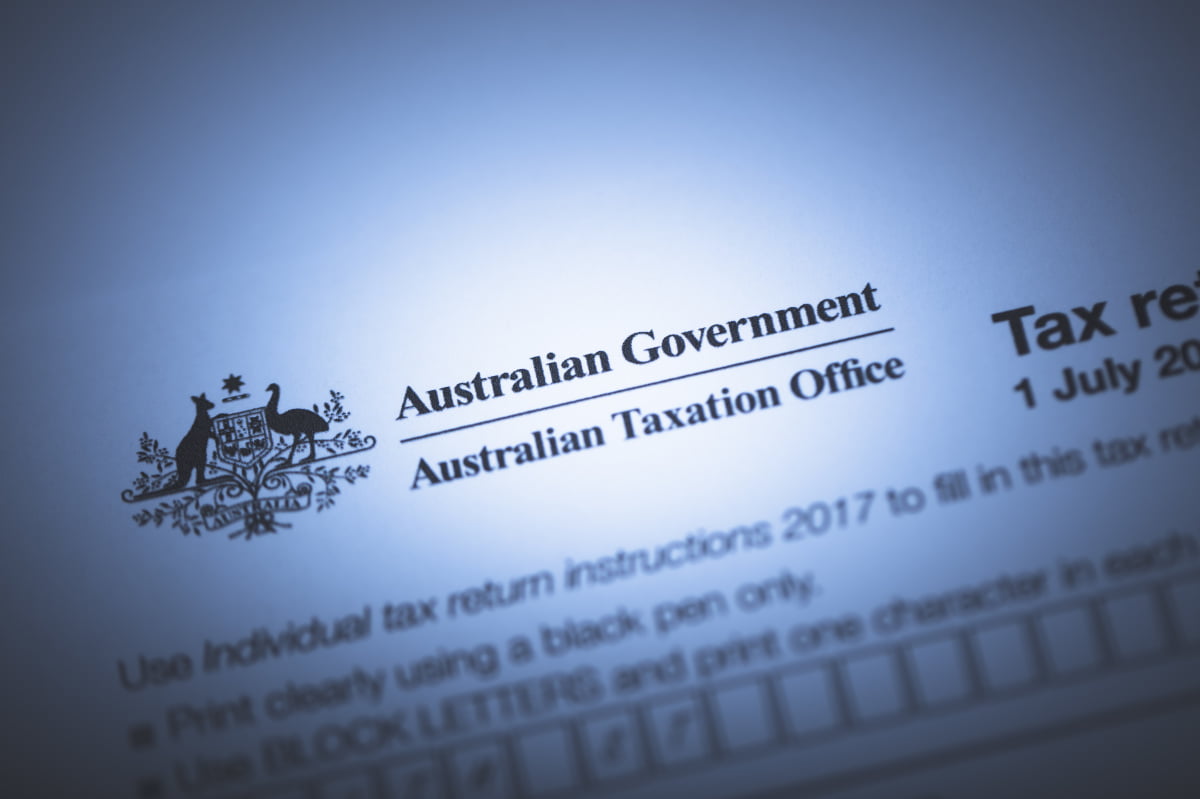What you need to know about doing your Australian tax return this year


It’s a new financial year and tax season is getting underway again.
But some things around what you should be doing with your return this time are a little different after a full year of the COVID-19 pandemic.
Here’s a look at what you need to know.
What can I claim differently this time?
If you’ve been working at home, there are several expenses you can include in your return.
The Australian Tax Office is expecting an increase in deductions related to people working from home – that means things such as electricity, internet, and phone costs, and depreciation in the value of office equipment.
Ken Devos, an associate professor of accounting at Swinburne University of Technology, said there are a few ways you can work out your deductions related to working from home depending on your situation.
The most straightforward of these is the temporary shortcut method, which uses a rate of 80 cents per hour to calculate your claim for all out-of-pocket, work-related expenses.
“Basically, what this saves is a lot of paperwork,” he said. “All you need to do is to keep a record of the number of hours that you actually did work at home during the week.
“Someone who was working from home, for example, for the whole year – 40 hours a week, 48 weeks of the year – that would be a straight-out standard claim of approximately $1,500, which is very easy and simple to work out.”
But given it’s an all-inclusive method, it may not be the best option for everyone.
Another alternative is the 52 cent rate method, which works similarly to the 80 cent method, but only includes electricity and gas, and the depreciation and repairs of office furniture in the calculation.
It allows phone, internet, computer, and stationery costs to be added separately to the claim.
The final option is the actual expenses method, which requires the claimant to have kept a lot of records.
Mr Devos said the most sensible decision is to pick the method that will give you the greatest benefit.
“The actual expenses method says you calculate everything separately, you keep the actual expenses that you’ve incurred throughout the year, and in addition to that, you include your depreciation calculations, so it has the potential to be a larger figure.
“Whereas the set rate of 80 cents, the shortcut method, you cannot then go and claim depreciation on top of that,” he said.
Mr Devos said people should be mindful while home office expenses may have increased this financial year, other costs may have gone down.
“Obviously working from home means that people have not been travelling, they have not been using their cars as much as would normally be the case,” he said.
“Therefore, the ATO will be looking very closely at car and travel expenses, so you need to be careful there.”
What can’t I claim?
While there are many working from home expenses you can claim, the ATO won’t cover everything you are used to from the office or worksite.
“Whilst your employer might provide the coffee, tea, and biscuits at work, if you incur that expense at home, it is not a deductible expense,” ATO assistant commissioner Tim Loh told the SBS On the Money podcast.
Mr Loh said the tax office has seen people try to claim many things as working from home expenses.
“Other costs that we see people make as a mistake in their tax return relate to costs associated with their child’s education,” he said.
“Another expense that we often see people try and claim when they are working from home is occupancy costs.”
Mr Devos said the rule for claiming deductions is that the cost must have been incurred by you for something related to earning your income, and not have been reimbursed by your employer.
“A lot of people have got more time now at home and they’re spending that time taking up courses, doing study,” he said.
“You’ve got to be careful. You cannot claim these particular courses as a deduction if they’re not related to your current work, so those cooking courses and those elaborate craft courses that some people like to do, as exciting as they may be, unfortunately, they’re probably not related to your main occupation.”
What new things do I have to declare?
Cryptocurrency, for one.
The ATO said it will be keeping an eye out to ensure the more than 600,000 Australians who have invested in crypto assets such as bitcoin in recent years include it in their tax returns.
It has been writing to 100,000 of them to remind them of their obligations when it comes to capital gains tax.
“Cryptocurrency is like an investment asset, so it is kind of like shares, and so the similar tax obligations apply to cryptocurrency like it applies to shares,” Mr Loh said.
“So if you sell, swap or exchange cryptocurrency, there will be a taxable transaction, and you are required to include that in your tax return.”
He said while the fluctuating value of crypto assets and the different exchange rates may complicate things, the ATO is around to help.
“We do expect, though, taxpayers to keep good records,” he said.
“In any event, we have got information through data matching protocols, which allows us to get information from crypto exchanges, which we can use to data match against taxpayers.”
With more people taking up extra jobs during the pandemic or working in different capacities, Mr Devos said it is vital you remember to include them in your return, as well.
“People can’t segregate these particular jobs from their main job,” he said.
“I mean, these are second jobs which are generating income, which potentially, of course, is assessable income, which you must pay tax on.”
And for those who have received a COVID-19 Disaster Payment, you will also have to declare that.
If you received JobSeeker or JobKeeper payments, the ATO will automatically include that information in your return for you when it is ready.
What are the key dates?
One thing that hasn’t changed this year is when you need to lodge your tax return by.
As always, you have until 31 October.
You have longer if you are planning on using a registered tax agent, but you still need to be one of their clients by the end of October.
And while you can technically prepare and submit your tax return through myGov right now, getting it in before August could mean it takes the ATO longer to process your claim.
“By the end of July, information from employers, banks, health funds, government agencies and more will automatically be added to your tax return,” Mr Loh said.
“If you want to lodge earlier, you must take care to manually add all your income.”
Should I get an accountant?
It depends on the simplicity of your situation, Mr Devos said.
“There are a number of reasons why people go to tax agents. Mainly it is due to the fact their circumstances are a little bit complex, maybe it involves property, maybe it has capital gains and losses,” he said.
“If you do have income coming in from overseas, you may have tax obligations there as an Australian resident on all your worldwide income, and that includes worldwide assets.
“Basically, if your tax return is getting a little bit complicated in those respects, it is probably good advice to go to a tax practitioner and get professional advice.”
That cost can always be claimed back next year.
Those with lower incomes could also be eligible to get free assistance through the ATO’s Tax Help program.
“Somebody who wishes to do their tax, and they are earning around $60,000 or less, can make an appointment to see me,” said Karuna Chinniah, a retired accountant and ATO Tax Help volunteer at the Multicultural Council of Wagga Wagga.
What in-language help is available?
For those who come from a non-English-speaking background, Tax Help volunteers and the ATO are here to help, Mr Chinniah said.
He explains how part of the process works: “We call the translation and interpretation service and get them to connect to the tax office, so that the tax office can then interview them and provide their tax file number and so on to get the lodgement process going. Those interpreters will also sometimes help me communicate with the clients.”
Tax resources can also be found on the ATO’s website in more than 20 languages.
Source: sbs.com.au




